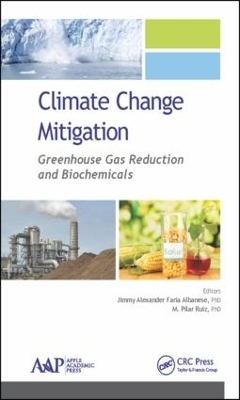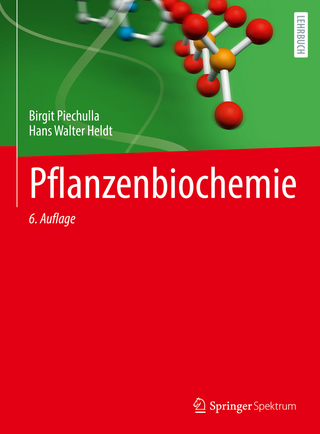
Climate Change Mitigation
Apple Academic Press Inc. (Verlag)
978-1-77188-242-2 (ISBN)
Climate change is a significant threat to humanity's future. Culturally, politically, economically, and personally, however, we are all deeply embedded in a system that continues to send us on a collision course that leads directly toward this threat. At this point, climate change is inevitable. What we must do now is to find ways to prepare—and do all we can to slow our race to disaster. This means that a transition to a lower-carbon economy is unavoidable.
Biochemical research is vitally necessary for the transition we must make, and it will be an essential component of any climate policy. To that end, the editors have collected within this compendium the most recent and relevant research in this field. Included are:
Initial chapters explaining climate change impact and sustainability issues
Chapters focusing on biochemicals and biotechnologies that offer potential for offsetting and preparing for climate change
A section on the challenges that must be acknowledged, assessed, and overcome
A final chapter that offers 12 reasons why safe climate policy is affordable
These articles do not merely summarize answers that have already been found. Graduate students and scientific researchers will find these chapters also point the way toward future investigations that are still urgently needed. Policymakers and graduate-level environmental policy students will also find much food for thought within this compendium.
Jimmy Faria is senior scientist at Abengoa Research, a R&D division of Abengoa. He is a chemical engineer and obtained a PhD from the University of Oklahoma (USA) in 2012. His research at the School of Chemical, Biological and Material Science at the University of Oklahoma (USA) is focused on the catalytic conversion of biomass-derived compounds in a novel nanoparticle stabilized emulsion system developed in this group, as well as on the synthesis, characterization, and applications of amphiphilic nanohybrids (e.g., enhanced oil recovery). Maria Pilar Ruiz-Ramiro is senior scientist at Abengoa Research, a R&D division of Abengoa. She is a chemical engineer and obtained a PhD from the University of Zaragoza (Spain) in 2008. She later worked as research associate with Daniel E. Resasco at the School of Chemical, Biological and Material Science at the University of Oklahoma (USA). Her research is focused on the thermochemical conversion of biomass, synthesis, and characterization of carbon solids (carbon nanotubes, biomass char and soot), and the development of nanostructured catalysts for biofuels up-grading reactions.
Part I: Introduction. Part II: Biomass in Energy and Chemical Industries. Part III: Biomass Challenges. Part IV: Conclusions. Index.
| Zusatzinfo | 87 Illustrations, black and white |
|---|---|
| Verlagsort | Oakville |
| Sprache | englisch |
| Maße | 152 x 229 mm |
| Gewicht | 680 g |
| Themenwelt | Naturwissenschaften ► Biologie ► Biochemie |
| Naturwissenschaften ► Biologie ► Ökologie / Naturschutz | |
| Naturwissenschaften ► Chemie ► Technische Chemie | |
| Technik ► Bauwesen | |
| Technik ► Elektrotechnik / Energietechnik | |
| Technik ► Umwelttechnik / Biotechnologie | |
| ISBN-10 | 1-77188-242-5 / 1771882425 |
| ISBN-13 | 978-1-77188-242-2 / 9781771882422 |
| Zustand | Neuware |
| Haben Sie eine Frage zum Produkt? |
aus dem Bereich


